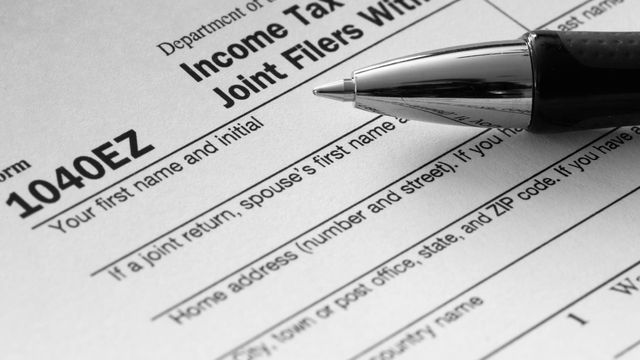Senate seeks to lower constitutional cap on income tax
A key state Senate committee voted Tuesday to approve a constitutional amendment that would lower the cap on the state's income tax to 5.5 percent. Voters would be asked to weigh in on the measure on the ballot in November.
Posted — UpdatedThe state constitution currently caps the income tax at 10 percent. The current state personal income tax is 5.75 percent, and it is scheduled to fall to 5.499 percent in 2017, when the amendment, if approved, would take effect.
The cap would also apply to the state's corporate income tax, currently at 4 percent but anticipated to drop to 3 percent in 2017 if revenue targets are met.
"So far, what we have done has worked," Rabon told the Senate Finance Committee. "What this amendment will help us do is to continue down the same path."
"It’s going to keep spending at a reasonable level," added co-sponsor Sen. Jerry Tillman, R-Randolph. "You won’t get your spending out of hand if you don’t have the money."
Sen. Floyd McKissick, D-Durham, argued it would reduce the flexibility of future legislatures, which might face another economic downturn and resulting budget shortfall. The shortfall in 2009-10 was around $3 billion.
"Why would we want to put our financial handcuffs on when we don’t need to do so?" McKissick asked.
Tillman replied that the state's newly shored-up rainy day fund would provide a backstop.
"Had you budgeted wisely and spent recurring money on recurring expenses," he said of Democratic budget writers in the years before the recession hit, "we wouldn’t have had this problem."
Rabon pointed out that Democrats had chiefly relied on a sales tax, not income tax, increase to help backfill the shortfall in 2009-10.
"If you need money in a hurry, income tax is not the way to go," he said. "Income tax is a one-year lag at least. Sales tax has a 30-day lag."
Sen. Angela Bryant, D-Nash, asked whether the cap could potentially cut into the state's ability to cover existing services, shifting more of the burden to local governments.
"Could this not end up with a negative impact on local property taxes?" Bryant said.
Rabon responded that expanding the sales tax base would mean more state money coming into counties, not less.
"Counties and cities get a percentage of that tax – a percentage of more is more," he said.
Representatives of the State Treasurer's Office were at the meeting but weren't invited to comment to the committee. An information sheet they circulated to committee members warned that the cap could endanger the state's bond rating and that other states with constitutional spending limits had run into problems with them.
Rabon called the document flawed.
"They seem to have cherry-picked some states that have repealed this," he said. "Georgia also has a cap on their income tax that is 6 percent. Georgia has done just fine. I believe we will do just fine. I don’t believe it will affect our bond rating."
The measure passed the committee on a voice vote and is expected to reach the Senate floor as soon as Wednesday.
Related Topics
• Credits
Copyright 2024 by Capitol Broadcasting Company. All rights reserved. This material may not be published, broadcast, rewritten or redistributed.





